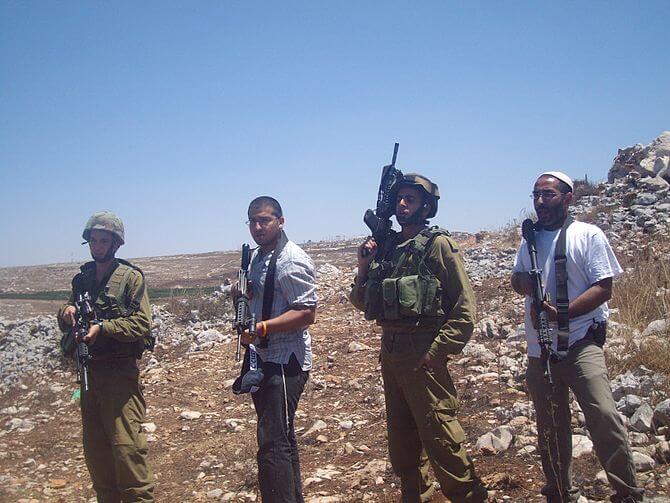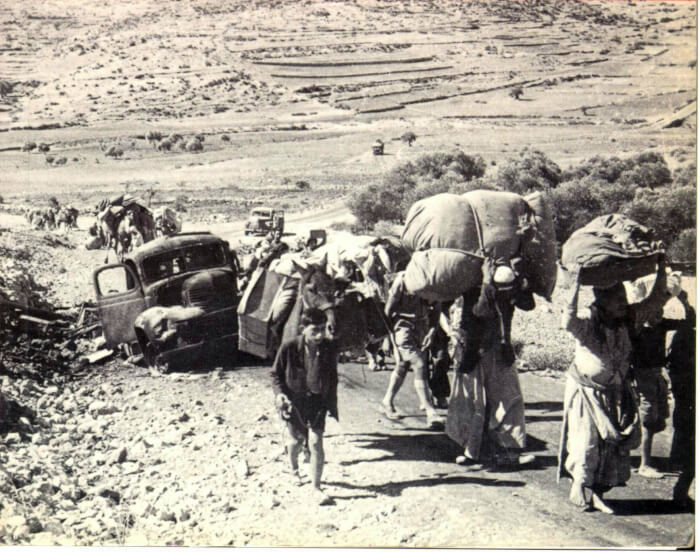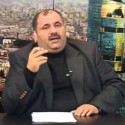UN to list businesses operating illegally in Occupied Palestinian lands
The United Nations Human Rights Council (HRC) is preparing to release a list of all of the businesses and corporations that are operating illegally on lands captured by Israel in 1967 in violation of international law. Despite Israel’s clever PR, companies that operate in the Occupied West Bank, Occupied Jerusalem and the Occupied Golan Heights are violating the Rule of Law if they produce food or other products manufactured or grown on lands stolen from Palestinian Christians and Muslims.
By Ray Hanania
Last year on March 24, 2016, the United Nations Human Rights Council, which Israel and the United States abandoned, authorized the creation of a list that would identify every business or corporation that is operating illegally in Israeli occupied West Bank, Israeli occupied Jerusalem and Israeli occupied Golan Heights.
There are about 150 companies on that list but it has steadily grown as another aspect of the Resolution (31/36) asks for information about any companies that begin operations after the date of the resolution’s adoption.
It’s been more than 20 months since the resolution was approved and it appears that the list will finally be released, soon, according to the Associated Press and frantic defenders of the illegal Israel settler and terrorist movement.

The Human Rights Commission list is critical to helping the public identify which companies are adhering to ethical and moral parameters of business from those that are engaged in nefarious and illegal activities including stealing resources from civilians who are brutalized by Israel’s oppressive military occupation.
It is of particular interest because it is the foundation of the original BDS (Boycott, Divestment, Sanction) movement which previously led the public in protest against the Israeli violations of civilian rights by Israeli settler terrorists and the Israeli military.
Extremists in the BDS movement have sought to redefine the BDS movement to also include a boycott of pre-1967 Israel, in an effort to undermine the peace process and prevent a peace based on land compromise, called the Two-State Solution. As the conflict has continued and worsened for civilians because of the absence of peace, the Alt-BDS movement (which urges a boycott of all of Israel) has gained strength and engages in targeting not only businesses that work in the occupied lands but also that operate inside Israel.
A major target of the Alt-BDS movement are entertainers who perform in Israel. Extremist Israelis and their allies have used the Alt-BDS movement activisties as proof of their anti-Semitism and anti-peace efforts, gaining sympathy among many int he world including in America where “BDS” has been incorrectly defined as “anti-Semitism.”
Here are documents on the Resolution and the creation of the important Blacklist of companies operating illegally in the Occupied West Bank, Occupied Jerusalem and Occupied Golan Heights:

Database Pursuant Human Rights Council Resolution 31/36
The Mandate
On 24 March 2016, at its 31st session, the Human Rights Council (HRC) adopted resolution 31/36 entitled “Israeli settlements in the Occupied Palestinian Territory, including East Jerusalem, and in the occupied Syrian Golan”. The HRC is an intergovernmental body, made up of 47 member states. Resolutions are voted on and adopted by these member states.
Paragraph 17 of this resolution requests the United Nations High Commissioner for Human Rights produce a database of all business enterprises engaged in certain Israeli settlement activity in the occupied Palestinian territory, in consultation with the Working Group on the issue of human rights and transnational corporations and other business enterprises.
The High Commissioner is obligated to carry out the mandate given to him by the HRC and implement the resolution as impartially, objectively and effectively as possible.
The Scope of the Database
As specified in resolution 31/36, the parameters of the business activities to be reflected in the database are defined by paragraph 96 of the report of the Independent International Fact-Finding Mission to investigate the implications of the Israeli settlements on the civil, political, economic, social and cultural rights of the Palestinian people throughout the Occupied Palestinian Territory, including East Jerusalem (A/HRC/22/63).
Paragraph 96 of A/HRC/22/63 reads as follows:
96. Information gathered by the mission showed that business enterprises have, directly and indirectly, enabled, facilitated and profited from the construction and growth of the settlements. In addition to the previously mentioned violations of Palestinian worker rights, the mission identified a number of business activities and related issues that raise particular human rights violations concerns. They include:
- The supply of equipment and materials facilitating the construction and the expansion of settlements and the wall, and associated infrastructures
- The supply of surveillance and identification equipment for settlements, the wall and checkpoints directly linked with settlements
- The supply of equipment for the demolition of housing and property, the destruction of agricultural farms, greenhouses, olives groves and crops
- The supply of security services, equipment and materials to enterprises operating in settlements
- The provision of services and utilities supporting the maintenance and existence of settlements, including transport
- Banking and financial operations helping to develop, expand or maintain settlements and their activities, including loans for housing and the development of businesses
- The use of natural resources, in particular water and land, for business purposes
- Pollution, and the dumping of waste in or its transfer to Palestinian villages
- Captivity of the Palestinian financial and economic markets, as well as practices that disadvantage Palestinian enterprises, including through restrictions on movement, administrative and legal constraints
- Use of benefits and reinvestments of enterprises owned totally or partially by settlers for developing, expanding and maintaining the settlements
The Timing of the Report
On February 13, 2017, the Human Rights Council, pursuant to the recommendation of the High Commissioner, decided to defer consideration of the report to allow for more time to carefully consider the submissions received and to ensure a fair process for concerned stakeholders. The report is due to be submitted no later than the end of December 2017. The report would then be presented to the Human Rights Council during its 37th session in March 2018.
Here is the actual Resolution:
Resolution adopted by the Human Rights Council on 24 March 2016 31/36.
Israeli settlements in the Occupied Palestinian Territory, including East Jerusalem, and in the occupied Syrian Golan
The Human Rights Council, Guided by the principles of the Charter of the United Nations, and affirming the inadmissibility of the acquisition of territory by force,
Reaffirming that all States have an obligation to promote and protect human rights and fundamental freedoms, as stated in the Charter and as elaborated in the Universal Declaration of Human Rights, the International Covenants on Human Rights and other applicable instruments,
Recalling relevant resolutions of the Commission on Human Rights, the Human Rights Council, the Security Council and the General Assembly reaffirming, inter alia, the illegality of the Israeli settlements in the occupied territories, including in East Jerusalem,
Recalling also Human Rights Council resolution 19/17 of 22 March 2012, in which the Council decided to establish an independent international fact-finding mission to investigate the implications of the Israeli settlements on the human rights of the Palestinian people throughout the Occupied Palestinian Territory, including East Jerusalem,
Reaffirming the applicability of the Geneva Convention relative to the Protection of Civilian Persons in Time of War, of 12 August 1949, to the Occupied Palestinian Territory, including East Jerusalem, and to the occupied Syrian Golan, and recalling the declarations adopted at the Conferences of High Contracting Parties to the Fourth Geneva Convention, held in Geneva on 5 December 2001 and 17 December 2014,
Noting the recent accession by Palestine to several human rights treaties and the core humanitarian law conventions, and its accession on 2 January 2015 to the Rome Statute of the International Criminal Court,
Affirming that the transfer by the occupying Power of parts of its own civilian population into the territory it occupies constitutes a breach of the Fourth Geneva Convention and relevant provisions of customary law, including those codified in Additional Protocol I to the four Geneva Conventions,
United Nations A/HRC/RES/31/36
Recalling the advisory opinion rendered on 9 July 2004 by the International Court of Justice on the legal consequences of the construction of a wall in the Occupied Palestinian Territory, and recalling also General Assembly resolutions ES-10/15 of 20 July 2004 and ES-10/17 of 15 December 2006,
Noting that the International Court of Justice concluded that the Israeli settlements in the Occupied Palestinian Territory, including East Jerusalem, had been established in breach of international law,
Taking note of the recent relevant reports of the Secretary-General, the Office of the United Nations High Commissioner for Human Rights, the Special Committee to Investigate Israeli Practices Affecting the Human Rights of the Palestinian People and Other Arabs of the Occupied Territories and the treaty bodies monitoring compliance with the human rights treaties to which Israel is a party, and the recent reports of the Special Rapporteur on the situation of human rights in the Palestinian territories occupied since 1967,
Recalling the report of the independent international fact-finding mission to investigate the implications of the Israeli settlements on the civil, political, economic, social and cultural rights of the Palestinian people throughout the Occupied Palestinian Territory, including East Jerusalem,
1
Noting that Israel has over the years been planning, implementing, supporting and encouraging the establishment and expansion of settlements in the Occupied Palestinian Territory, including East Jerusalem, through, inter alia, the granting of benefits and incentives to settlements and settlers,
Recalling the Quartet road map to a permanent two-State solution to the IsraeliPalestinian conflict, and emphasizing specifically its call for a freeze on all settlement activity, including so-called natural growth, and the dismantlement of all settlement outposts erected since March 2001, and the need for Israel to uphold its obligations and commitments in this regard,
Taking note of General Assembly resolution 67/19 of 29 November 2012, by which, inter alia, Palestine was accorded the status of non-member observer State in the United Nations, and also of the follow-up report thereon of the Secretary-General,
2
Aware that Israeli settlement activities involve, inter alia, the transfer of nationals of the occupying Power into the occupied territories, the confiscation of land, the forcible displacement of Palestinian civilians, including Bedouin families, the exploitation of natural resources, the conduct of economic activity for the benefit of the occupying Power, the disruption of the livelihood of protected persons, the de facto annexation of land and other actions against the Palestinian civilian population and the civilian population in the occupied Syrian Golan that are contrary to international law,
Affirming that the Israeli settlement activities in the Occupied Palestinian Territory, including East Jerusalem, undermine regional and international efforts aimed at the realization of the two-State solution of Israel and Palestine, living side by side in peace and security within recognized borders, on the basis of the pre-1967 borders, and stressing that the continuation of these policies seriously endangers the viability of the two-State solution, undermining the physical possibility of its realization,
1 A/HRC/22/63.
2 A/67/738.
Noting in this regard that the Israeli settlements fragment the West Bank, including East Jerusalem, into isolated geographical units, severely limiting the possibility of a contiguous territory and the ability to dispose freely of natural resources, both of which are required for the meaningful exercise of Palestinian self-determination,
Noting that the settlement enterprise and the impunity associated with its existence, expansion and related violence continue to be a root cause of many violations of the Palestinians’ human rights, and constitute the main factors perpetuating Israel’s belligerent occupation of the Palestinian Territory, including East Jerusalem, since 1967,
Condemning the continuation by Israel, the occupying Power, of settlement activities in the Occupied Palestinian Territory, including in East Jerusalem, in violation of international humanitarian law, relevant United Nations resolutions, the agreements reached between the parties and obligations under the Quartet road map, and in defiance of the calls by the international community to cease all settlement activities,
Expressing grave concern in particular at the construction and expansion by Israel of settlements in and around occupied East Jerusalem, including its so-called E-1 plan, which aims to connect its illegal settlements around and further isolate occupied EastJerusalem, the continuing demolition of Palestinian homes and eviction of Palestinian families from the city, the revocation of Palestinian residency rights in the city, and ongoing settlement activities in the Jordan Valley,
Expressing grave concern at the continuing construction by Israel of the wall inside the Occupied Palestinian Territory, including in and around East Jerusalem, in violation of international law, and expressing its concern in particular at the route of the wall in departure from the Armistice Line of 1949, which is causing humanitarian hardship and a serious decline in socioeconomic conditions for the Palestinian people, is fragmenting the territorial contiguity of the Territory and undermining its viability, and could prejudge future negotiations by creating a fait accompli on the ground that could be tantamount to de facto annexation in departure from the Armistice Line of 1949, and make the two-State
solution physically impossible to implement,
Deeply concerned that the wall’s route has been traced in such a way as to include the great majority of the Israeli settlements in the Occupied Palestinian Territory, including East Jerusalem,
Gravely concerned at all acts of violence, destruction, harassment, provocation and incitement by extremist Israeli settlers and groups of armed settlers in the Occupied Palestinian Territory, including East Jerusalem, against Palestinian civilians, including children, and their properties, including homes, agricultural lands and historic and religious sites, and the acts of terror carried out by several extremist Israeli settlers, which are a longstanding phenomenon aimed at, inter alia, displacing the occupied population and facilitating the expansion of settlements,
Expressing concern at ongoing impunity for acts of settler violence against Palestinian civilians and their properties, and stressing the need for Israel to investigate and to ensure accountability for all of these acts,
Aware of the detrimental impact of the Israeli settlements on Palestinian and other Arab natural resources, especially as a result of the confiscation of land and the forced diversion of water resources, including the destruction of orchards and crops and the seizure of water wells by Israeli settlers, and of the dire socioeconomic consequences in this regard, which precludes the Palestinian people from being able to exercise permanent sovereignty over their natural resources,
Noting that the agricultural sector, considered the cornerstone of Palestinian economic development, has not been able to play its strategic role because of the dispossession of land and the denial of access for farmers to agricultural areas, water resources and domestic and external markets owing to the construction, consolidation and expansion of Israeli settlements,
Recalling Human Rights Council resolution 22/29 of 22 March 2013, in follow-up to the report of the independent international fact-finding mission to investigate the implications of Israeli settlements on the civil, political, economic, social and cultural rights of the Palestinian people throughout the Occupied Palestinian Territory, including East Jerusalem,
Recalling also the Guiding Principles on Business and Human Rights, which place responsibilities on all business enterprises to respect human rights by, inter alia, refraining from contributing to human rights abuses arising from conflict, and call upon States to provide adequate assistance to business enterprises to assess and address the heightened risks of abuses in conflict-affected areas, including by ensuring that their current policies, legislation, regulations and enforcement measures are effective in addressing the risk of business involvement in gross human rights abuses,
Noting that, in situations of armed conflict, business enterprises should respect the standards of international humanitarian law, and concerned that some business enterprises have, directly and indirectly, enabled, facilitated and profited from the construction and growth of the Israeli settlements in the Occupied Palestinian Territory,
Reaffirming the fact that the High Contracting Parties to the Fourth Geneva Convention relative to the Protection of Civilian Persons in Time of War, of 12 August 1949, undertook to respect and to ensure respect for the Convention in all circumstances, and that States should not recognize an unlawful situation arising from breaches of peremptory norms of international law,
Calling upon all States not to provide Israel with any assistance to be used specifically in connection with settlements in the Occupied Palestinian Territory, including East Jerusalem, and in the occupied Syrian Golan,
Emphasizing the importance for States to act in accordance with their own national legislation on promoting compliance with international humanitarian law with regard to business activities that result in human rights abuses,
Concerned that economic activities facilitate the expansion and entrenchment of settlements, and aware that the conditions of harvesting and production for products made in settlements involve the breach of applicable legal norms, inter alia, the exploitation of the natural resources of the Occupied Palestinian Territory, including East Jerusalem, and calling upon all States to respect their legal obligations in this regard, Aware that products wholly or partially produced in settlements have been labelled
as originating from Israel,
Aware also of the role of private individuals, associations and charities in third States that are involved in providing funding to Israeli settlements and settlement-based entities, contributing to the maintenance and expansion of settlements,
Expressing its concern at the failure of Israel, the occupying Power, to cooperate fully with the relevant United Nations mechanisms, in particular the Special Rapporteur on the situation of human rights in the Palestinian territories occupied since 1967,
1. Reaffirms that the Israeli settlements in the Occupied Palestinian Territory, including East Jerusalem, and in the occupied Syrian Golan are illegal and an obstacle to peace and economic and social development;
2. Calls upon Israel to accept the de jure applicability of the Geneva Convention relative to the Protection of Civilian Persons in Time of War, of 12 August 1949, to the Occupied Palestinian Territory, including East Jerusalem, and to the occupied Syrian Golan, to abide scrupulously by the provisions of the Convention, in particular article 49 thereof, and to comply with all its obligations under international law and cease immediately all actions causing the alteration of the character, status and demographic
composition of the Occupied Palestinian Territory, including East Jerusalem, and the occupied Syrian Golan;
3. Demands that Israel, the occupying Power, immediately cease all settlement activities in all the Occupied Palestinian Territory, including East Jerusalem, and in the occupied Syrian Golan, and calls in this regard for the full implementation of all relevant resolutions of the Security Council, including, inter alia, resolutions 446 (1979) of 22 March 1979, 452 (1979) of 20 July 1979, 465 (1980) of 1 March 1980, 476 (1980) of 30 June 1980 and 1515 (2003) of 19 November 2003;
4. Also demands that Israel, the occupying Power, comply fully with its legal obligations, as mentioned in the advisory opinion rendered on 9 July 2004 by the International Court of Justice;
5. Condemns the continuing settlement and related activities by Israel, including the expansion of settlements, the expropriation of land, the demolition of houses, the confiscation and destruction of property, the expulsion and displacement of Palestinians, including entire communities and the construction of bypass roads, which change the physical character and demographic composition of the occupied territories, including East Jerusalem and the Syrian Golan, and constitute a violation of the Fourth Geneva Convention relative to the Protection of Civilian Persons in Time of War, of 12 August
1949, and in particular article 49 thereof;
6. Also condemns the construction of new housing units for Israeli settlers in the West Bank and around occupied East Jerusalem, as it seriously undermines the peace process and jeopardizes the ongoing efforts by the international community to reach a final and just peace solution compliant with international law and legitimacy, including relevant United Nations resolutions, and constitutes a threat to the two-State solution;
7. Expresses its grave concern at, and calls for the cessation of:
(a) The operation by Israel of a tramway linking the settlements with West Jerusalem, which is in clear violation of international law and relevant United Nations resolutions;
(b) The expropriation of Palestinian land, the demolition of Palestinian homes, demolition orders, forced evictions and “relocation” plans, the obstruction and destruction of humanitarian assistance and the creation of unbearable living conditions by Israel in areas identified for the expansion and construction of settlements, and other practices aimed at the forcible transfer of the Palestinian civilian population, including Bedouin communities and herders, and further settlement activities, including the denial of access to water and other basic services by Israel to Palestinians in the Occupied Palestinian Territory, including East Jerusalem, particularly in areas slated for settlement expansion, and including the appropriation of Palestinian property through, inter alia, declarations of so-called “State lands”, closed “military zones”, “national parks” and “archaeological” sites to facilitate and advance the expansion or construction of settlements and related infrastructure, in violation of Israel’s obligations under international humanitarian law and international human rights law;
(c) Israeli measures in the form of policies, laws and practices that have the effect of preventing Palestinians from full participation in the political, social, economic and cultural life of the Occupied Palestinian Territory, including East Jerusalem, and prevent their full development in both the West Bank and the Gaza Strip;
8. Calls upon Israel, the occupying Power:
(a) To reverse the settlement policy in the occupied territories, including East Jerusalem and the Syrian Golan, and, as a first step towards the dismantlement of the settlement enterprise, to stop immediately the expansion of existing settlements, including so-called natural growth and related activities, to prevent any new installation of settlers in the occupied territories, including in East Jerusalem, and to discard its “E-1” plan;
(b) To put an end to all of the human rights violations linked to the presence of settlements, especially of the right to self-determination, and to fulfil its international obligations to provide effective remedy for victims;
(c) To take immediate measures to prohibit and eradicate all policies and practices that discriminate against and disproportionately affect the Palestinian population in the Occupied Palestinian Territory, including East Jerusalem, by, inter alia, putting an end to the system of separate roads for the exclusive use of Israeli settlers, who reside illegally in the said territory, to the complex combination of movement restrictions consisting of the wall, roadblocks and a permit regime that only affects the Palestinian
population, the application of a two-tier legal system that has facilitated the establishment and consolidation of the settlements, and other violations and forms of discrimination;
(d) To cease the requisition and all other forms of unlawful appropriation of Palestinian land, including so-called “State land”, and its allocation for the establishment and expansion of settlements, and to halt the granting of benefits and incentives to settlements and settlers;
(e) To put an end to all measures and policies resulting in the territorial fragmentation of the Occupied Palestinian Territory, including East Jerusalem, and which are isolating Palestinian communities into separate enclaves and changing the demographic composition of the Occupied Palestinian Territory;
(f) To take and implement serious measures, including confiscation of arms and enforcement of criminal sanctions, with the aim of ensuring full accountability for and preventing all acts of violence by Israeli settlers, and to take other measures to guarantee the safety and protection of Palestinian civilians and Palestinian properties in the Occupied Palestinian Territory, including East Jerusalem;
(g) To bring to a halt all actions, including those perpetrated by Israeli settlers, harming the environment, including the dumping of all kinds of waste materials in the Occupied Palestinian Territory, including East Jerusalem, and in the occupied Syrian Golan, which gravely threaten their natural resources, namely water and land resources, and which pose an environmental, sanitation and health threat to the civilian population;
(h) To cease the exploitation, damage, cause of loss or depletion and endangerment of the natural resources of the Occupied Palestinian Territory, including East Jerusalem, and of the occupied Syrian Golan;
9. Welcomes the adoption of the European Union Guidelines on the eligibility of Israeli entities and their activities in the territories occupied by Israel since June 1967 for grants, prizes and financial instruments funded by the European Union since 2014;
10. Encourages all States and international organizations to continue to actively pursue policies that ensure respect of their obligations under international law with regard to all illegal Israeli practices and measures in the Occupied Palestinian Territory, including East Jerusalem, particularly Israeli settlements;
11. Reminds all States of their legal obligations as mentioned in the advisory opinion of the International Court of Justice of 9 July 2004 on the legal consequences of the construction of a wall in the Occupied Palestinian Territory, including not to recognize the illegal situation resulting from the construction of the wall, not to render aid or assistance in maintaining the situation created by such construction, and to ensure compliance by Israel with international humanitarian law as embodied in the Geneva Convention relative to the Protection of Civilian Persons in Time of War of 12 August 1949;
12. Urges all States:
(a) To ensure that they are not taking actions that either recognize or assist the expansion of settlements or the construction of the wall in the Occupied Palestinian Territory, including East Jerusalem, including with regard to the issue of trading with settlements, consistent with their obligations under international law;
(b) To implement the Guiding Principles on Business and Human Rights in relation to the Occupied Palestinian Territory, including East Jerusalem, and to take appropriate measures to help to ensure that businesses domiciled in their territory and/or under their jurisdiction, including those owned or controlled by them, refrain from committing or contributing to gross human rights abuses of Palestinians, in accordance with the expected standard of conduct in the Guiding Principles and relevant international laws and standards, by taking all necessary steps;
(c) To provide guidance to individuals and businesses on the financial, reputational and legal risks, including the possibility of liability for corporate involvement in gross human rights abuses, and abuses of the rights of individuals, of becoming involved in settlement-related activities, including through financial transactions, investments, purchases, procurements, loans and the provision of services, and other economic and financial activities in or benefiting Israeli settlements, to inform businesses of these risks in the formulation of their national action plans for the implementation of the Guiding Principles on Business and Human Rights, and to ensure that their policies, legislation, regulations and enforcement measures effectively address the heightened risks of operating a business in the Occupied Palestinian Territory, including East Jerusalem;
(d) To increase monitoring of settler violence with a view to promoting accountability;
13. Calls upon business enterprises to take all measures necessary to comply with the Guiding Principles on Business and Human Rights and relevant international laws and standards with respect to their activities in or in relation to the Israeli settlements and the wall in the Occupied Palestinian Territory, including East Jerusalem, to avoid the adverse impact of such activities on human rights and to avoid contributing to the establishment or maintenance of Israeli settlements or the exploitation of natural resources of the Occupied Palestinian Territory;
14. Requests that all parties concerned, including United Nations bodies, implement and ensure the implementation of the recommendations contained in the report of the independent international fact-finding mission to investigate the implications of Israeli settlements on the civil, political, economic, social and cultural rights of the Palestinian people throughout the Occupied Palestinian Territory, including East Jerusalem, 1, and endorsed by the Human Rights Council through its resolution 22/29, in accordance with their respective mandates;
15. Calls upon the relevant United Nations bodies to take all necessary measures and actions within their mandates to ensure full respect for and compliance with Human Rights Council resolution 17/4 of 16 June 2011, on the Guiding Principles on Business and Human Rights and other relevant international laws and standards, and to ensure the implementation of the United Nations “Protect, Respect and Remedy” Framework, which provides a global standard for upholding human rights in relation to business activities that are connected with Israeli settlements in the Occupied Palestinian Territory, including East Jerusalem;
16. Takes note of the statement of the Working Group on the issue of human rights and transnational corporations and other business enterprises in follow-up to Human Rights Council resolution 22/29;
17. Requests the United Nations High Commissioner for Human Rights, in close consultation with the Working Group on the issue of human rights and transnational corporations and other business enterprises, in follow-up to the report of the independent international fact-finding mission to investigate the implications of the Israeli settlements on the civil, political, economic, social and cultural rights of the Palestinian people throughout the Occupied Palestinian Territory, including East Jerusalem, 1, and as a necessary step for the implementation of the recommendation contained in paragraph 117 thereof, to produce a database of all business enterprises involved in the activities detailed
in paragraph 96 of the afore-mentioned report, to be updated annually, and to transmit the data therein in the form of a report to the Council at its thirty-fourth session;
18. Requests the Secretary-General to report on the implementation of the present resolution, with particular emphasis on the human rights and international law violations involved in the production of settlement goods and the relationship between trade in these goods and the maintenance and economic growth of settlements, at its thirty-fourth session;
19. Decides to remain seized of the matter.
66th meeting
24 March 2016
Adopted by a recorded vote of 32 to 0, with 15 abstentions. The voting was as follows:
In favour:
Algeria, Bangladesh, Bolivia (Plurinational State of), Botswana, Burundi, China, Congo, Côte d’Ivoire, Cuba, Ecuador, El Salvador, Ethiopia, India, Indonesia, Kenya, Kyrgyzstan, Maldives, Mexico, Mongolia, Morocco, Namibia, Nigeria, Panama, Philippines, Qatar, Russian Federation, Saudi Arabia, South Africa, Switzerland, United Arab Emirates, Venezuela (Bolivarian Republic of), Viet Nam
Abstaining:
Albania, Belgium, France, Georgia, Germany, Ghana, Latvia, Netherlands, Paraguay, Portugal, Republic of Korea, Slovenia, the former Yugoslav Republic of Macedonia, Togo, United Kingdom of Great Britain and Northern Ireland


- Israelisnipers shooting and killing hospital workers in Gaza - December 11, 2023
- CAIR Condemns Israeli Executions of Wounded, Unarmed Palestinian in West Bank - December 11, 2023
- Arab and Muslim American voters face a “simple choice” between Biden’s inhumanity and Trump’s edgy politics - December 9, 2023

























